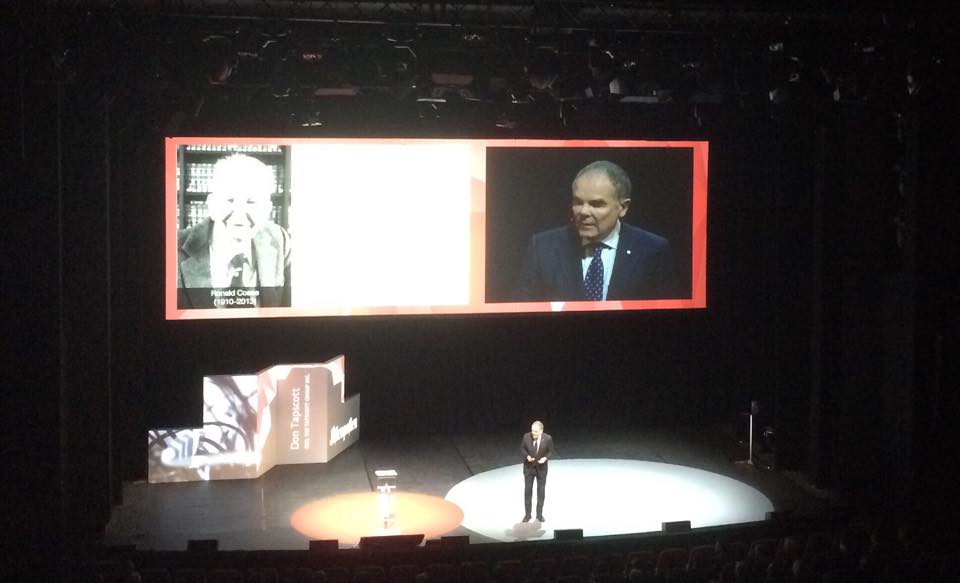The first 40 years have been the Internet of information. Soon there will be a new wave of technology known as «the blockchain revolution», says digital strategist Don Tapscott.
During the Aftenposten´s Technology Conference, Don Tapscott, who was listed as the 4th greatest business thinker in the world in 2013, stressed the need to go from a resourced-based economy to a digital one. The biggest drivers for change where, according to him, technology, mobility, big data, Internet of things, the rise of the cloud and drones and robotics.
A central topic during his speech was the impact of blockchain, a permissionless distributed database that maintains a continuously growing list of data records hardened against tampering and revision, even by operators of the data store’s nodes.
Keeping the user’s information anonymous, the blockchain validates and keeps a permanent public record of all transactions, and thereby lets people who have no particular confidence in each other collaborate without having to go through a neutral central authority. In other words, it is a way of making and preserving truths, where the concept of trust is build in the system itself. This has the potential to transform how people and businesses co-operates, Tapscott thinks.
–The blockchain creates a new platform for industries such as the financial service industry, where they can use the blockchain as a record of who owns what instead of having a series of internal ledgers.
Given that the blockchaines meet the need for a trustworthy record, blockchains automatically becomes a threat to everyone who works in the “trust industry» – the centralised institutions and bureaucracies – such as banks. As for banks themselves, Santander estimates that banks using blockchains can save as much as $20 billion a year by 2022, says the Economist.









